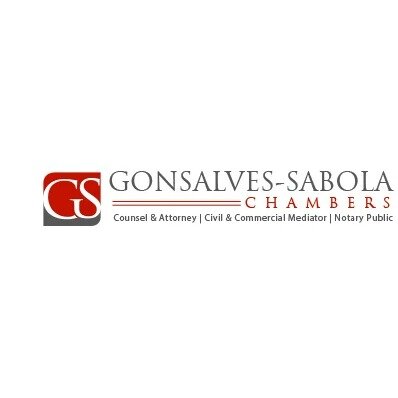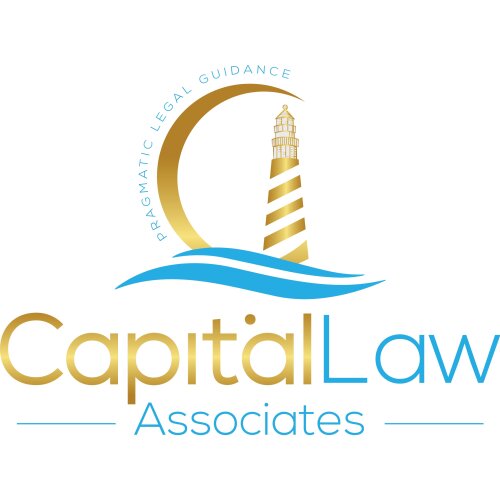Best Business Registration Lawyers in Bahamas
Share your needs with us, get contacted by law firms.
Free. Takes 2 min.
Or refine your search by selecting a city:
List of the best lawyers in Bahamas
About Business Registration Law in Bahamas
Business Registration in the Bahamas is a vital process for anyone looking to establish a legal business entity in the country. The process is governed by the Companies Act, 1992, and involves several steps, including choosing a business structure, registering the business name, and obtaining necessary licenses and permits. Registration ensures compliance with Bahamian laws and regulations, providing legal protection and credibility for the business.
Why You May Need a Lawyer
While business registration might seem straightforward, several situations may necessitate legal assistance:
- Complex Business Structures: Deciding on the appropriate legal structure for your business (e.g., corporation, limited liability company, partnership) may require expert advice.
- Compliance Issues: Ensuring that all legal and regulatory requirements are met can be complicated, and a lawyer can ensure compliance to avoid future legal problems.
- Drafting and Reviewing Documents: Legal documents need precise wording to cover all aspects of operation and to protect your interests.
- Foreign Business Owners: Non-residents aiming to establish a business in the Bahamas may face additional regulations and restrictions where legal help can be invaluable.
- Intellectual Property Protection: A lawyer can assist in registering trademarks or patents, protecting your business's intellectual assets.
Local Laws Overview
Here are key aspects of the local laws relevant to Business Registration in the Bahamas:
- Companies Act, 1992: This is the primary legislation governing business registration and management.
- The Business License Act: Requires all businesses to obtain a business license and comply with sector-specific regulations.
- Registration of Business Names Act: Mandates that all business names be registered, particularly if operating under a name different from the owner’s personal name.
- Investment Incentives: Foreign investors may benefit from incentives under the Bahamas Investment Authority (BIA) if they fall within approved sectors.
- Compliance and Regulatory Framework: Businesses must adhere to anti-money laundering statutes and tax obligations.
Frequently Asked Questions
Do I need to register my business if it's part-time?
Yes, any business, whether full-time or part-time, that operates for profit must be registered in the Bahamas.
How long does the business registration process take?
The process can take anywhere from a few days to several weeks, depending on the business structure and completeness of the submitted documents.
What types of business structures can I consider?
Common structures include sole proprietorship, partnership, limited liability company (LLC), and corporation.
Can a foreigner register a business in the Bahamas?
Yes, foreigners can register businesses, but there may be additional steps and compliance with the Foreign Investment Board requirements.
What's the cost of registering a business?
Costs vary based on business type, size, and structure but include registration fees, licensing fees, and possibly legal fees.
Do I need a local director or partner?
While not always mandatory, having a Bahamian director or partner can facilitate compliance and understanding of local practices.
Is it necessary to renew the business registration?
Yes, renewals may be required annually, often associated with license renewal processes.
What are the ongoing compliance requirements?
Businesses must comply with tax filings, financial record maintenance, and periodic submissions to regulatory authorities.
Where can I check if my preferred business name is available?
The Registrar General’s Department maintains databases for business name availability checks.
What is the role of the Bahamas Investment Authority?
The BIA handles applications for foreign investment and administers investment incentive programs.
Additional Resources
Here are some valuable resources and organizations to consider:
- The Registrar General’s Department - Responsible for the incorporation and registration of businesses.
- Bahamas Investment Authority (BIA) - Offers guidance on investment opportunities and incentives.
- The Bahamas Chamber of Commerce and Employers' Confederation - Provides support and advocacy for businesses.
- Ministry of Finance - Oversees tax and financial regulations that affect businesses.
Next Steps
If you require legal assistance in business registration, consider the following steps:
- Research Legal Firms: Look for firms specializing in business law and those with experience in Bahamian business registration.
- Consultation: Arrange a consultation to discuss your business needs, structure, and any specific legal concerns.
- Prepare Documentation: Gather all necessary documents, including identity proofs and business plans, to streamline the consultation process.
- Budgeting: Consider the cost of legal services and potential government fees involved in the registration process.
- Follow-Up: After initial consultations, follow up on advice and next steps for compliance and successful registration.
Lawzana helps you find the best lawyers and law firms in Bahamas through a curated and pre-screened list of qualified legal professionals. Our platform offers rankings and detailed profiles of attorneys and law firms, allowing you to compare based on practice areas, including Business Registration, experience, and client feedback.
Each profile includes a description of the firm's areas of practice, client reviews, team members and partners, year of establishment, spoken languages, office locations, contact information, social media presence, and any published articles or resources. Most firms on our platform speak English and are experienced in both local and international legal matters.
Get a quote from top-rated law firms in Bahamas — quickly, securely, and without unnecessary hassle.
Disclaimer:
The information provided on this page is for general informational purposes only and does not constitute legal advice. While we strive to ensure the accuracy and relevance of the content, legal information may change over time, and interpretations of the law can vary. You should always consult with a qualified legal professional for advice specific to your situation.
We disclaim all liability for actions taken or not taken based on the content of this page. If you believe any information is incorrect or outdated, please contact us, and we will review and update it where appropriate.
Browse business registration law firms by city in Bahamas
Refine your search by selecting a city.

















